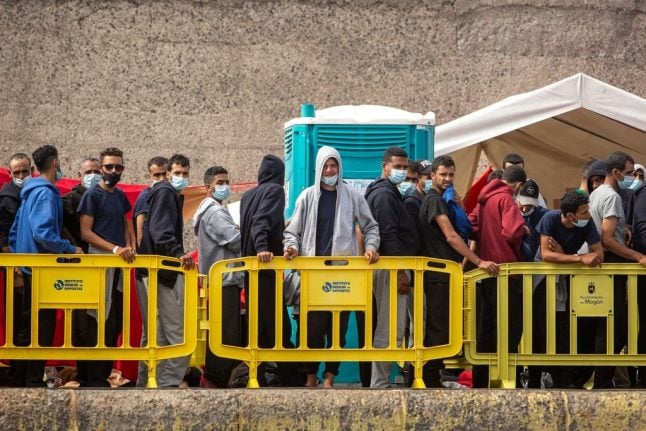A young British tourist staying on the Canary Island of Gran Canaria has been caught on camera jumping off his hotel apartment’s balcony on the fourth floor.
Unlike previous alcohol and drug-fuelled jumps by young British revellers in Spain (known as balconing in the UK and Spanish press), this time there wasn’t a swimming pool down below to supposedly cushion the fall.
A witness filmed as the 28 year old first climbed over the balcony railing and tiptoed aimlessly and dangerously up and down the ledge, as local police in the street below tried to dissuade him.
After several minutes of heart-stopping antics, in which the man even tried unsuccessfully to climb up a beam to the fifth floor, he crouches and jumps into the void to the shock of passers-by.
Miraculously the man referred to in local daily La Opinión as Ronnie R.W. landed on a car which cushioned the blow, leaving him practically unscathed despite his reckless act.
Upon his immediate arrest, whist still encrusted in the vehicle’s smashed windscreen, the man admitted to Spanish police he had been consuming cocaine and crystal meth.
The events took place on Friday afternoon at Playa del Inglés (which ironically translates to Englishman’s Beach), a popular tourist destination on the island for British tourists, among them young revellers on cheap and boozy holiday packages.



 Please whitelist us to continue reading.
Please whitelist us to continue reading.